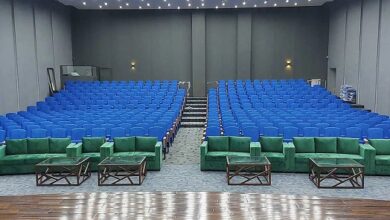What is Ecovillage Key features and how to live in an ecovillage
Ecovillage
An ecovillage is an ecological settlement, a place where some or several people live in search of a low environmental impact life and great social cooperation. The basis of these places are the four dimensions of sustainability: social, cultural, ecological and economic. These communities can be made both in the countryside, on the beach or in big cities.
Find out what an ecovillage is, what are the main characteristics and differences between them, how to visit them and why you should live in one.
Key features of an ecovillage
More than green initiatives, ecovillages serve those who seek a life of cooperation with other people and with nature. Unlike the neighborhoods and cities we see today, developed without common planning and goals, ecological communities have guidelines that are decided collectively. These settlements also serve as small-scale management and coexistence models, facilitating the process of testing and changing as many times as necessary for the well-being of that group.
According to the Global Ecovillage Network , there are two types of formatting ecovillages: traditional ones are rural spaces that choose to redesign their system in search of sustainable development, and intentional ones , where people who share the same purpose and vision come together.
What these settlements have in common:
Objectives: this is the “glue” of the community, what gives it direction and cohesion. There are several objectives that can guide the group, from agriculture, spirituality, social struggles, among others.
Intelligent use of resources: knowing how to use the materials that are in abundance around you, reducing costs and reducing impacts, is essential. Many times in an ecovillage the concepts of permaculture are used , which have the premise of caring for the earth, people and the future.
Regeneration : in addition to preserving, it is also necessary to regenerate. It is common to find in these spaces the implementation of agroforestry, reforestation, vegetable gardens, among other initiatives that seek to recover forests and animals that are being threatened.
Dialogue and communication : regardless of being completely horizontal or having some leadership, it is understood that in these groups there must be transparency so that conflicts are resolved in a peaceful and constructive way.
Encouraging observation and learning : whether in relation to the external or internal world, ecovillages are places that seek constant learning, understanding that there are no ready-made answers, if not constant evolution.
Not everything is flowers
Like most things in life, the theory is beautiful, but in practice there are many communities that can be problematic. It is necessary to remember that societies are created by people. They will have different stories, differing opinions and, often, difficulty in overcoming conflicts. Most ecovillages end precisely because of discord between members. It is essential that, in order for these problems to be minimized, there are formal agreements, those recorded on paper, which will serve as consultation and guidance for any problem that may arise.
How to live in an ecovillage
There are several places that accept new members and, for that, they have different formats. Some places require the purchase or rent of a space, others, on the other hand, do not allow this type of exchange, making everything always belong to the organization and not to the people. There are some basic tips before you move to an ecovillage:
- Do not jump to conclusions before knowing the project. It is common for people to idealize spaces like these, thinking that it will be aligned with what they believe. But the truth is that the concept of a good place to live varies a lot and can be completely different from what you believe.
- Know the goals of the community before deciding to move. To help you not make the mistake of jumping to conclusions, get information through the website, talk to locals and even people who have already passed where you would like to go. Make sure they are the same goals you are looking for, for example, if you want to go to a place that works on spirituality. Maybe you don’t feel so good if you only focus on the agroecology part.
- See if there is a volunteer program to spend time with the group before taking a bigger, more concrete step like housing. This will even give you the opportunity to get to know more places before settling on one.
- Don’t carry as much baggage , be it the material ones, as the mental and emotional ones. It is important to understand that you are going to a very different place from the way most people live. Open yourself up to new experiences, leaving the old “I” and giving opportunity for learning.
- Keep in mind the collectivity and service to be in an eco village. The sense of community is essential in these spaces, which are precisely looking to provide a new reality in response to the individualism and competition that exists in traditional culture.




